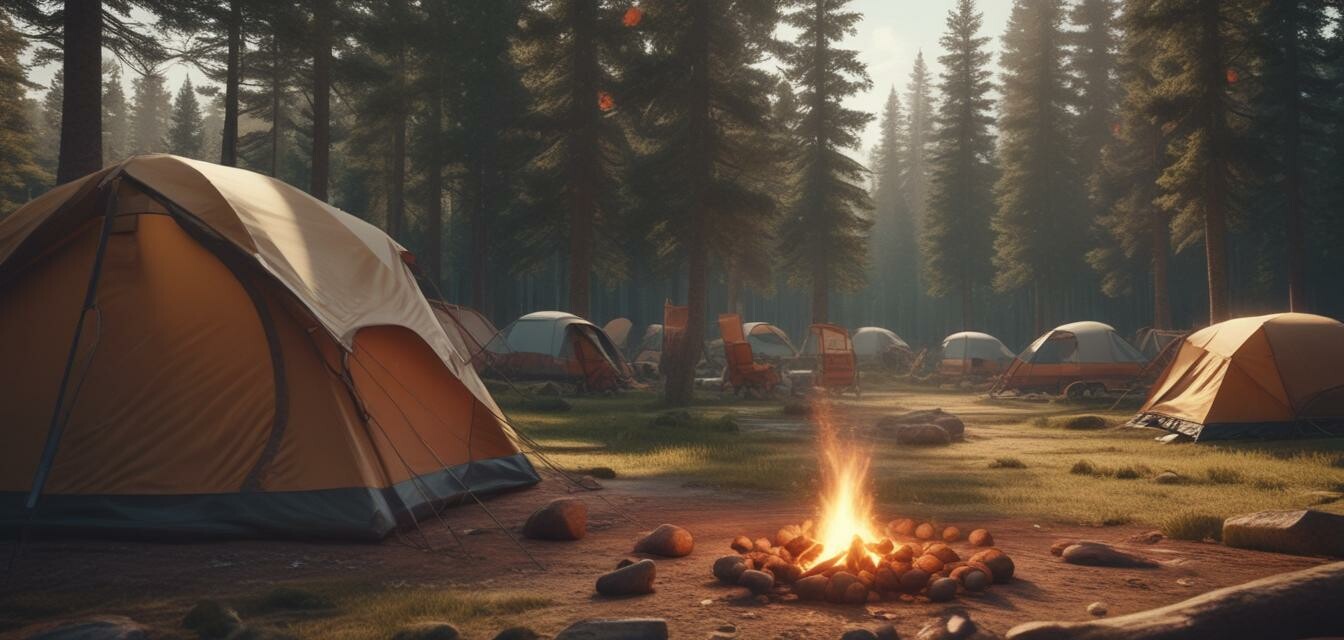
Preparing for Your First Group Camping Trip
Key takeaways
- Choose a suitable location for the group.
- Coordinate gear sharing to minimize costs.
- Plan meals ahead and assign cooking duties.
- Communicate logistics clearly with all participants.
- Ensure everyone understands safety protocols.
Planning a group camping trip can be an exciting yet daunting task, especially for beginners. Whether you're heading out with friends, family, or a local club, it’s essential to consider various factors that can lead to a successful outdoor adventure. This guide offers practical advice on organizing that first group camping trip, from gear sharing to logistics management. Let’s dive into what you need to consider!
Choosing the right campsite
The first step to preparing for your group camping trip is selecting the right campsite. Factors like location, amenities, and accessibility should guide your decision.
| Factor | Things to Consider |
|---|---|
| Location | Proximity to home, attractions, and natural features |
| Amenities | Restrooms, showers, and cooking facilities |
| Accessibility | Road conditions and ease of reaching the site |
| Group Size | Ensure the site can accommodate your group comfortably |
Research campsite options
Utilize resources like camping blogs, local guides, or review sites to find campsites that meet your group’s needs.
Planning logistics
Next on your list is planning the logistics. Clear communication and organization will ensure everyone knows their role in the camping adventure.
Creating a shared itinerary
- Set a departure date and time.
- Outline activities and meals.
- Assign specific responsibilities to each group member.
Transportation
Depending on your group's size, you may want to coordinate carpooling to minimize the number of vehicles. Using a shared spreadsheet can facilitate this process.
Gear sharing: A smart strategy
One of the biggest advantages of camping with a group is the ability to share gear. This approach can help reduce costs and lighten everyone’s load.
What to share
- Tents and sleeping bags
- Cooking equipment, such as stoves and utensils
- Coolers and food storage containers
- Games and recreational equipment
How to organize gear sharing
Set up a group chat or email thread where everyone can list what they can bring. This not only ensures you have all the necessary items but also helps avoid duplication.
Meal planning for a group
Food is an integral part of any camping trip, especially when you are with a group. Proper meal planning will enhance everyone's experience.
Assigning cooking duties
To prevent chaos around the campfire, designate meal prep responsibilities. This can be based on cooking skills or interests.
| Meal | Person Responsible |
|---|---|
| Breakfast | John |
| Lunch | Anna |
| Dinner | Steve |
| Snacks | Sara |
Suggestions for meals
Opt for easy-to-cook and pack meals. Consider dishes like:
- Wraps and sandwiches
- One-pot meals
- Grilled vegetables and meats
- Campfire-friendly desserts
Safety first
While fun is key, safety should always come first during your camping trip. Make sure everyone is aware of essential safety protocols.
Discuss safety guidelines
Prior to the trip, share safety tips through a group meeting or message. Topics to cover include:
- Campfire safety
- Wildlife encounters
- First aid basics
- Emergency communications
Prepare a first aid kit that is easily accessible, and ensure that someone in the group is familiar with its contents.
Enjoying the camping experience
While planning is important, don’t forget to leave room for spontaneity and fun! Enjoy the bonding time, share stories, and embrace the beauty of nature.
Pros
- Group camaraderie can enhance the outdoor experience.
- Sharing gear reduces individual costs and workloads.
- Meal planning guarantees everyone’s needs are met.
Cons
- Coordinating a large group can be challenging.
- Complex logistics can lead to confusion.
- Differences in camping styles may create tension.
Conclusion
Preparing for your first group camping trip involves several aspects, from planning the logistics to sharing gear. By working together and communicating efficiently, you can create lasting memories and enjoy the great outdoors. For additional tips on enhancing your camping expertise, explore our Camping Tips and Tricks section.